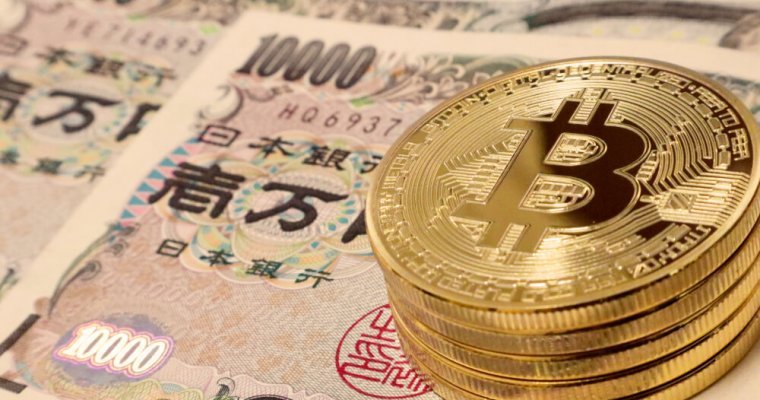
Japanese authorities have penalized seven domestic cryptocurrency exchanges following inspections, including a month-long suspension for two exchanges.
Japan’s Financial Services Agency (FSA), the country’s financial regulator and watchdog, has narrowed down on cryptocurrency exchange operators using lax cybersecurity practices and inadequate money laundering measures. Two exchanges, FSHO and Bit Station, are hit the hardest with month-long business suspension orders effective today.
Over the course of its inspections, the FSA discovered that a BitStation senior staff member had ‘diverted’ customers’ bitcoins for personal use, the Nikkei reports. There were repeated cases of high-value cryptocurrency trades with no judgment made about the need for notification of a suspicious transaction,” the FSA said of Yokohama-based FSHO.
Five other exchanges – Tech Bureau, GMO Coin, Bicrements, Mr. Exchange and Coincheck, the Tokyo-based exchange that lost $530 million in stolen NEM this year – have all been hit with business improvement orders by the FSA. All seven exchanges have been scrutinized for lacking proper internal control systems and underwhelming security measures. Two of the seven exchanges, Tech Bureau and GMO Coin, are notably registered with the FSA and are licensed to operate an exchange in Japan.
Following an onsite inspection of internet conglomerate GMO’s cryptocurrency exchange the regulator accused the operator of failing to investigate a number of system faults and subsequent measures to prevent them from occurring again.
The FSA began inspecting exchanges soon after the Coincheck hack in late January and the regulator determined that the exchange lacked measures to combat money laundering, demanding that the Tokyo-based operator ensure a reliable and secure business operation that safeguards consumer assets. Acknowledging its second such notice today, Coincheck said it will comply with a mandate to submit its improvement plan by March 22.
After completing its first round of inspections, the FSA reportedly fears a repeat of a Coincheck-style hack after discovering a multitude of concerns in customer protection and anti-money-laundering measures. While initially focusing on oversight into transactions and systems management, the FSA is now forcing exchanges to address a broader range of issues including corporate governance and management structure.apanese authorities have penalized seven domestic cryptocurrency exchanges following inspections, including a month-long suspension for two exchanges.
Japan’s Financial Services Agency (FSA), the country’s financial regulator and watchdog, has narrowed down on cryptocurrency exchange operators using lax cybersecurity practices and inadequate money laundering measures. Two exchanges, FSHO and Bit Station, are hit the hardest with month-long business suspension orders effective today.
Over the course of its inspections, the FSA discovered that a BitStation senior staff member had ‘diverted’ customers’ bitcoins for personal use, the Nikkei reports. There were repeated cases of high-value cryptocurrency trades with no judgment made about the need for notification of a suspicious transaction,” the FSA said of Yokohama-based FSHO.
Five other exchanges – Tech Bureau, GMO Coin, Bicrements, Mr. Exchange and Coincheck, the Tokyo-based exchange that lost $530 million in stolen NEM this year – have all been hit with business improvement orders by the FSA. All seven exchanges have been scrutinized for lacking proper internal control systems and underwhelming security measures. Two of the seven exchanges, Tech Bureau and GMO Coin, are notably registered with the FSA and are licensed to operate an exchange in Japan.
Following an onsite inspection of internet conglomerate GMO’s cryptocurrency exchange the regulator accused the operator of failing to investigate a number of system faults and subsequent measures to prevent them from occurring again.
The FSA began inspecting exchanges soon after the Coincheck hack in late January and the regulator determined that the exchange lacked measures to combat money laundering, demanding that the Tokyo-based operator ensure a reliable and secure business operation that safeguards consumer assets. Acknowledging its second such notice today, Coincheck said it will comply with a mandate to submit its improvement plan by March 22.
After completing its first round of inspections, the FSA reportedly fears a repeat of a Coincheck-style hack after discovering a multitude of concerns in customer protection and anti-money-laundering measures. While initially focusing on oversight into transactions and systems management, the FSA is now forcing exchanges to address a broader range of issues including corporate governance and management structure.
Hi! I am a robot. I just upvoted you! I found similar content that readers might be interested in:
https://www.ccn.com/japans-financial-regulator-cracks-whip-7-cryptocurrency-exchanges/
I follow you. Upvote last post please.
Last upvote here: https://steemit.com/cryptocurrency/@underworld24/ethereum-establishment-honors-millions-in-new-allow-subsidizing